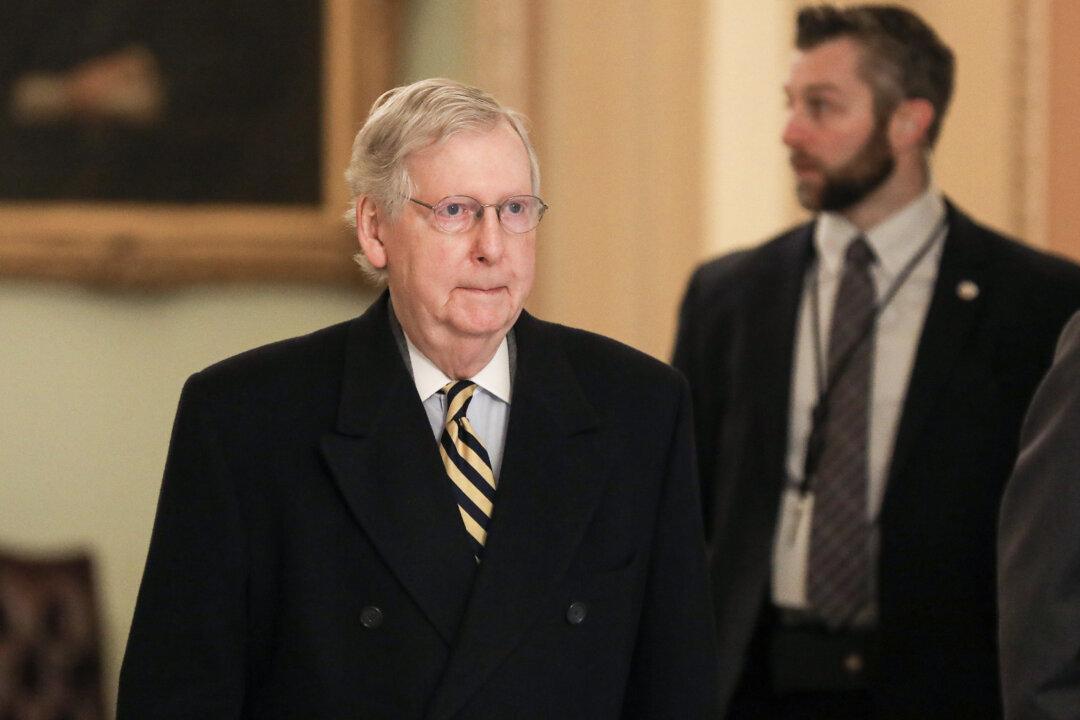Senate Republicans rejected a resolution to call witnesses late Friday and approved a resolution that calls for a vote on the two articles of impeachment to be held on Wednesday in the impeachment trial of President Donald Trump.
Senators voted along party lines 53-47 approving Senate Majority Leader Mitch McConnell’s (R-Ky.) resolution, which sets up the timeline for the rest of the trial proceedings.It calls for closing statements to be heard starting Monday 11 a.m., which will “not exceed four hours and [will] be equally divided between the House and the President to be used as under the Rules of Impeachment.”





